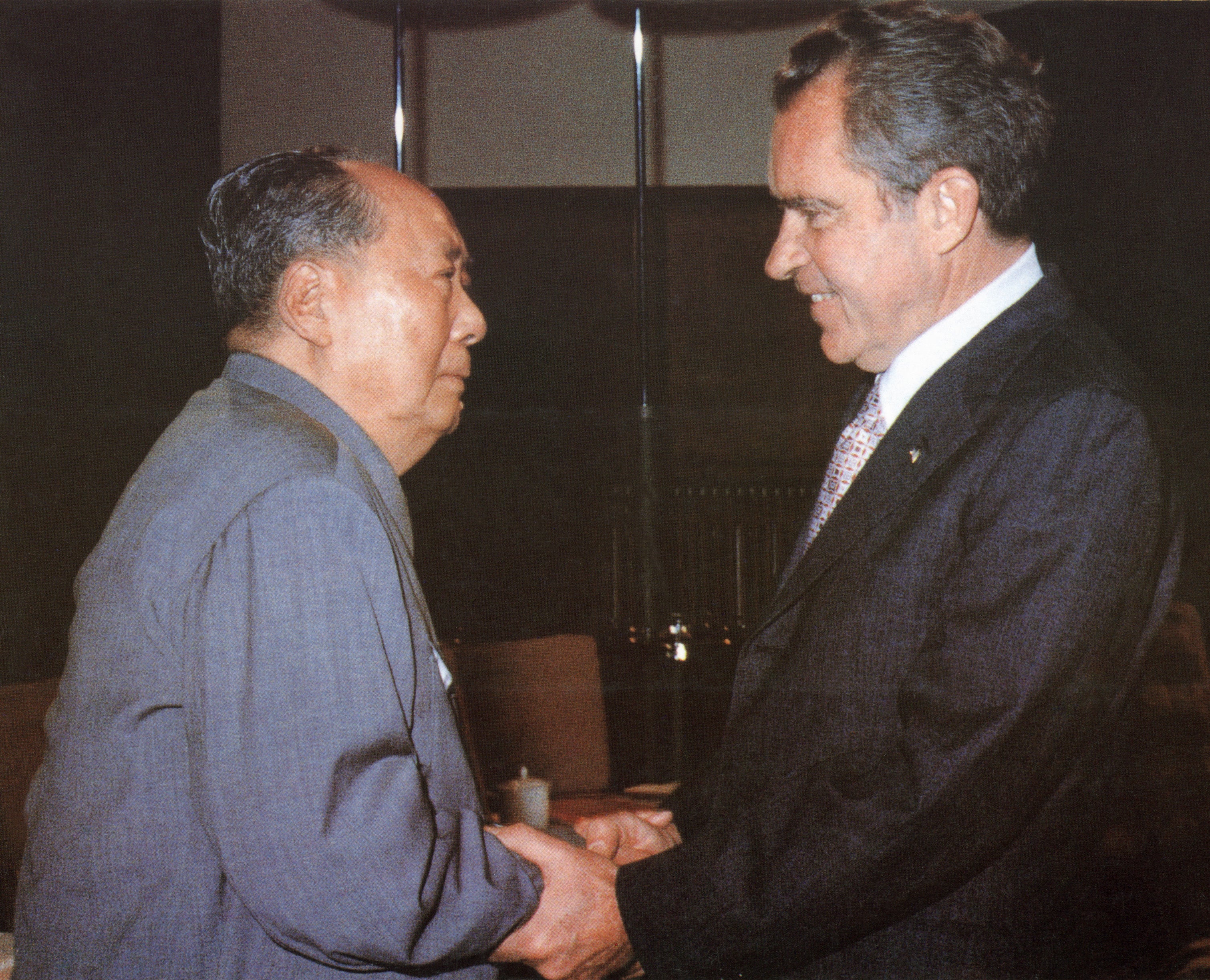When Nixon met Mao – 50 years on
It was the meeting that ‘changed the world’ at the height of the Cold War, writes David Harding


Not many diplomatic summits end up getting turned into operas, even though Liz Truss and Sergei Lavrov have given it a good go.
But 50 years ago this month, one of the most memorable, high-profile and symbolic meetings between two world leaders took place when Richard Nixon headed to China to meet Mao Zedong. It was the meeting that “changed the world” at the height of the Cold War between the planet’s most powerful country and its most populous – two countries which had not exchanged a word for 25 years.
President Nixon deemed the event so seismic that he addressed the American people live on television just to announce he was planning to visit China.
Adding to the drama, the summit was only arranged after National Security Adviser Henry Kissinger flew to Pakistan, pretended he had a stomach complaint, then hopped on a secret night flight to China and asked the Beijing leadership for a meeting.
Nixon’s visit went ahead on 21 February 1972 and lasted a week. Even flying out, he wasn’t sure he would get to meet Mao, but the two leaders did just that and spoke awkwardly – according to some accounts – for an hour and got the all-important picture of a handshake. Mao even joked he had voted for Nixon at the last election.
Both the US and China were worried by the USSR and were keen to send a message to Moscow. At the same time, America was still fighting its disastrous war in Vietnam, which borders China.
The visit was seen as a success, despite the two main protagonists not remaining in power much longer – Nixon resigned in disgrace over Watergate two years later and Mao, in ill-health before the meeting, died in 1976.
To keep up to speed with all the latest opinions and comment sign up to our free weekly Voices newsletter by clicking here
Its cultural relevance was cemented by the opera Nixon in China, premiering in Houston in 1987, and performances have carried on well into this century. Its political relevance remains strong as well.
The US and China were teaming up against Russia and, 50 years on, with this month’s meeting between Xi Jinping and Vladimir Putin, it now seems it is the US being pushed aside. And just like 1972, the current world is being divided into competing blocs by the major powers. The US and China’s relationship is under severe strain and the Ukraine crisis looms for Washington and Moscow.
Let’s just hope no one makes a tragedy rather than an opera out of current events.
Yours,
David Harding
International editor






Join our commenting forum
Join thought-provoking conversations, follow other Independent readers and see their replies
Comments